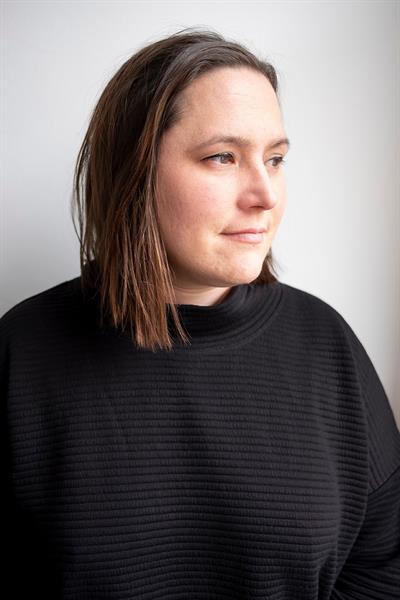Lisa Hall
Title
CRiSAP Research Centre Manager
College
University of the Arts London
Email address
Tags
Researcher Research

Biography
Lisa Hall is a sound artist and researcher working in the field of sonic urbanism, employing artistic and critical enquiry to explore how sound reveals, shapes, and questions life in human habitats. Her practice investigates listening and sounding as a method of urban enquiry, and its generation of sonic-based knowledge for cross disciplinary implementation.This enquiry is rooted in a portfolio of practice-based research which includes: the online exhibition ‘Acts of Air: Reshaping the Urban Sonic’ (2020 - 2023) a participatory project activating urban environments across the globe; the international symposium ‘Sound, Art & Urban Spaces’ (2021) held at CRiSAP, London College of Communication, exploring curatorial insights into urban exploration; ‘Walking with Crickets’ (2015–2019) a digital enactment of a mobile audio trend investigating urban sonic connectivity, staged with numerous academic and arts organisations; a programe of audio interventions for the ‘City Sonic Places’ sympoisum, CRiSAP, LCC (2018); and ‘Regresses’ (2015), a performative sonic catwalk for urban exploration, staged at the V&A museum. More recent urban works include: ‘Walking through the Anthropocene’ (2024, DE), a sound walk to locate the edges of urban space within an interconnected age; ‘It tastes like hair’ (2019, AU), a collaborative sound and text installation with Salomé Voegelin, part of an RMIT University urban research project; and ‘We Are Just … (2021–22), a collaborative app-based sonic exploration of an urban park made with Hannah Kemp-Welch for Further Field Gallery. Together, these works frame urban space as a sonic terrain made of social, political, imaginary and more-than-human entanglements, where sound provides a method to hear into systems and processes, vibrating around the edges of visual façades.
In an academic context, Lisa has presented her research in peer-reviewed journals ('Unlikely: Journal for Creative Arts'), at conferences (‘In The Field 2’, London College of Communication (2024, UK), ‘Urban Sound Symposium’ at LeSalle University (2023, ES), International Media Music and Sound Arts Network in Education (2022, NL), ‘Sound Reasons Festival’ (2018, IN), ‘Sound & Environment’, University of Hull (2017, UK), ‘Temporary Autonomous Zones’, Ulster University (2017, UK), ‘Sound-Traces-Moves’, Society for Dance Research (2017, AT), as an invited guest lecturer (Greenwich University (2025, UK), Concordia University (2021, CA), Leeds Beckett University (2021, UK), as a keynote lecturer (London College of Communication (2016, 2021 & 2023, UK)) and in the delivery of live research workshops (Bartlett School of Architecture (2021, UK), Goldsmiths University of London (2020, UK), London College of Communication (2021, UK)). Lisa’s work has also been referenced in peer-reviewed academic journals including 'Cities & Health', and 'Sound Studies Journal', and she has been a peer-reviewer for academic journals.
Lisa’s creative practice extends into many collaborative projects which explore other themes of sonic practice. In 2020 she co-founded the Shortwave Collective, a feminist radio group addressing the electromagnetic spectrum and practicing a feminist rethinking of technology. Shortwave Collective have exhibited and performed widely, most recently at Tate Britian in conjunction with the 'Women in Revolt' exhibition (2024, UK), in Struer Tracks Biennale (2023, DK), and at Café Oto (2025, UK) as part of the CRiSAP 20th Anniversary celebrations. The collective’s chapter ‘Plural Radio Listening’ has been published in ‘Bodies of Sound: Becoming a Feminist Ear’, with Silver Press (2024), and as part of the Listening Biennale’s online publication (2023). With the Bicrophonic Research Institute, Lisa has contributed to sonic cycling projects that sonify air pollution, empowering residents to discover and understand the pollution they live within. This work draws on the World Health Organization’s polution statistics to challenge the UK government’s position on air-based health via DEFRA. The project proposes alternative ways to experience environmental data, and recognises it as lived, local knowledge.